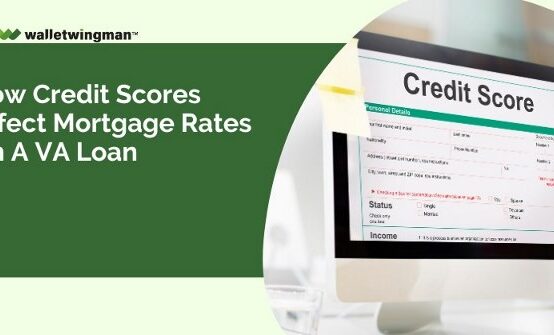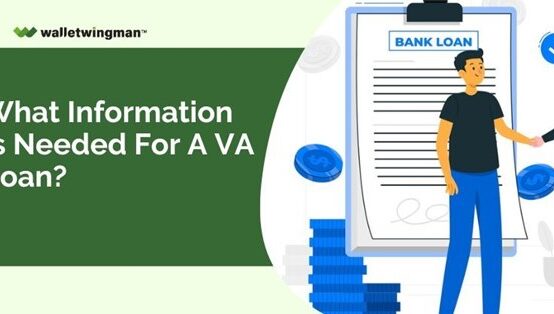In a previous article, we explored the basic steps of owning a home with a VA loan. One of those steps involved the lender ordering a home appraisal to determine the value of the property being purchased.
In this guide, we will first explore the advantages of VA loans before moving on to the primary reasons why VA loans require a home appraisal and how these requirements can affect the buyer.
Advantages of VA Loans for Military Members and Veterans
VA loans offer a range of unique benefits tailored to meet the needs of military members and veterans, making homeownership more accessible and affordable. Here’s a detailed overview of the various advantages associated with VA loans:
Competitive Interest Rates

VA mortgages usually have lower interest rates when compared to standard mortgage loans. These lower interest rates help reduce the total homeownership of military members and veterans, generating the probability of lower monthly mortgage rates over the loan period.
The VA department guarantees a proportion of each VA loan, which motivates lenders to offer favorable interest rates to deserving borrowers.
No Down Payment Requirement
An essential advantage of VA loans is that no down payment requirement is eligible. Unlike conventional loans that usually require a sizable down payment, a VA loan enables military members and veterans to purchase a house by financing the entire purchase without even bothering to accumulate a down payment.
This element eliminates the main expense of home ownership, thus making it easier for people to attain their goal of having a house.
No Private Mortgage Insurance (PMI)
VA loans generally do not require private mortgage insurance (PMI), which is usually required with conventional loans if one’s down payment is less than 20%. PMI is a secondary payment that must be made monthly if housing authorities fall back on their mortgage payment obligations.
This prevents PMI payments and reduces the mortgage payments borrowers have to make every month that they would otherwise use towards other essential expenses or savings.
Flexible Qualification Criteria
The criteria for qualification in VA loans are more flexible than in conventional mortgage loans. Traditional mortgage lenders are more specific on credit score and debt-to-income ratio requirements, thus less flexible to favorable conditions.
The VA loan regulations do consider a set of factors other than traditional lenders. A military member or veteran with unfavorable credit or limited finances can also qualify for a VA loan if he passes the VA eligibility criteria and demonstrates a capacity to repay.
These advantages have been tailored such that they are suitable for addressing the unique situations and the financial challenges always faced by military members and veterans.
Through attractive interest rates, no down payments, and PMI elimination, along with flexible requirements for qualification, VA loans permit veterans to purchase homes with confidence and easy accessibility.
This confirms the government’s resolve to the military leaders and their families by providing for their transition from military service to civilian life and enhancing financial stability through homeownership.

Home Appraisals Are Required for VA Loans
The VA loan program, administered by the US Department of Veterans Affairs, is a one-of-a-kind chance for veterans and military members to purchase a house with not a single penny paid as a mortgage deposit.
The fact that it is distinct from such loans that typically involve mortgage insurance and low-down payments, especially for first-time buyers, makes VA loans highly attractive to eligible borrowers. Nevertheless, along with the pros of the VA Loans come some VA Loan requirements, such as an obligatory home appraisal, which goes prior to closing.
A VA home appraisal is an objective assessment conducted by a certified appraiser whose main task is to determine the property’s fair market value from an unbiased perspective. This main function is to set the ceiling of the loan amount to the level of property value, thus protecting the borrower and lender by not considering the property for a higher value.
Moreover, the appraisal is a major stage where it is reliably established if the property falls within the VA’s acceptable minimum requirements. This feature makes this arrangement much safer for the buyer.
While the appraisal process may primarily benefit the lender by mitigating risk, it also provides valuable insights for the homebuyer. By offering an unbiased assessment of the property’s value based on factual data and market analysis, the appraisal empowers buyers to make informed decisions. It safeguards against overpaying for a property and assures that the investment aligns with the property’s true market worth.
The VA Home Loan Guaranty Buyers Guide, published by the Department of Veterans Affairs, explains it this way:
“The appraisal provides an appraiser’s opinion of the value of the home and whether it meets VA’s minimum property requirements. It also assures you and your lender that the value of the property is based on facts and market data, not just the seller’s opinion. It can help give you confidence that the home you want to purchase is worth the investment you are making.”
It emphasizes that the appraisal not only determines the property’s value but also assesses its compliance with VA’s minimum property requirements. This dual-purpose evaluation ensures that the home is not only a wise investment but also a safe and suitable residence for the buyer.
In summary, the VA home appraisal plays a vital role in the VA loan process, benefiting both lenders and homebuyers alike. By providing an objective assessment of the property’s value and ensuring adherence to VA standards, the appraisal instills confidence in all parties involved, facilitating a smooth and secure homebuying experience.

Two Reasons for the Appraisal
As mentioned in the above quote, there are two primary reasons or requirements for the VA loan home appraisal.
1. Determining Value
The process of determining the value of a home, whether for a VA loan or a conventional mortgage, is critical for all parties involved in the transaction. The appraiser plays a central role in this process by conducting a thorough analysis of the property and comparing it to recent sales in the area. By considering factors such as the home’s size, condition, location, and comparable sales, the appraiser arrives at an objective assessment of its current market value.
This evaluation is essential for both the mortgage lender and the home buyer.
For the lender, it helps mitigate risk by ensuring that the amount of the loan does not exceed the property’s worth. This protects the lender’s investment and reduces the likelihood of default. For the home buyer, the appraisal provides reassurance that they are not overpaying for the property, helping to prevent financial strain in the future.
Overall, the VA appraisal process, akin to its conventional counterpart, serves to promote transparency, fairness, and financial prudence in real estate transactions.
2. Minimum Property Requirements
With a VA home appraisal, the appraiser has a secondary role and responsibility. They will also review the property being purchased to ensure it meets the minimum VA appraisal requirements decided by the Department of Veterans Affairs.
We’ve covered these minimum property requirements in a previous blog post. The short version is that the home being purchased must be safe and habitable for the new occupant. It must be livable and move-in ready without the need for extensive repairs.
Those are the two minimum requirements for a VA loan appraisal, and they are partly what makes this program different from conventional mortgage financing.
With a conventional home loan, the appraisal will mainly focus on determining the current market value of the house. However, with a VA loan, the home appraisal has a “dual-purpose” mission to determine the market value as well as the overall condition of the property, ensuring it meets the VA’s minimum property requirements outlined in the VA loan home appraisal checklist.
VA loans differ from conventional financing in other ways as well, including the zero-down payment option. It’s one of the only mortgage programs available that allows a person to buy a home with no money down and no mortgage insurance.

Understanding the ‘Escape Clause’
When you use a VA loan to buy a house, your purchase contract will have VA appraisal guidelines that will likely include something known as the “escape clause.” Basically, this clause allows you to back out of the deal without losing your earnest money if the appraisal comes in lower than the price that the home is bought with.
In other words, if the appraiser determines that the house is worth less than the amount the seller is charging, you can exit the deal without forfeiting your deposit.
With a conventional mortgage loan, this kind of “appraisal contingency” is optional. It’s up to the home buyer whether or not they want to include it in their contract. Sometimes, a buyer might waive or omit the appraisal contingency to make their offer more appealing to the lender.
But with a VA loan, the home appraisal escape clause must be included within the contract.
This important clause states that the buyer “shall not incur any penalty by forfeiture of earnest money or otherwise be obligated to complete the purchase of the property described herein if the contract purchase price or cost exceeds the reasonable value of the property established by the Department of Veterans Affairs.”
The escape clause goes on to explain that the purchaser can choose to move forward with the purchase of the home despite the low appraisal situation. If the buyer really wants the house, and the previous owner refuses to lower the price to match the appraisal, the buyer could pay the difference in cash at closing.
However, the escape clause gives the buyer a choice in the matter by allowing them to cancel the deal if the appraisal comes in below the purchase price.


 How to Buy a Condo Unit with a VA Mortgage Loan
How to Buy a Condo Unit with a VA Mortgage Loan  How Credit Scores Affect Mortgage Rates on a VA Loan
How Credit Scores Affect Mortgage Rates on a VA Loan  How Much Can I Borrow When Using a VA Loan to Buy a House?
How Much Can I Borrow When Using a VA Loan to Buy a House?  10 Important Quotes from the Official VA Loan Buyer’s Guide
10 Important Quotes from the Official VA Loan Buyer’s Guide  What Information Is Needed for a VA Loan?
What Information Is Needed for a VA Loan?  How Much Does a VA Loan Home Appraisal Cost, and Who Pays for It?
How Much Does a VA Loan Home Appraisal Cost, and Who Pays for It? 